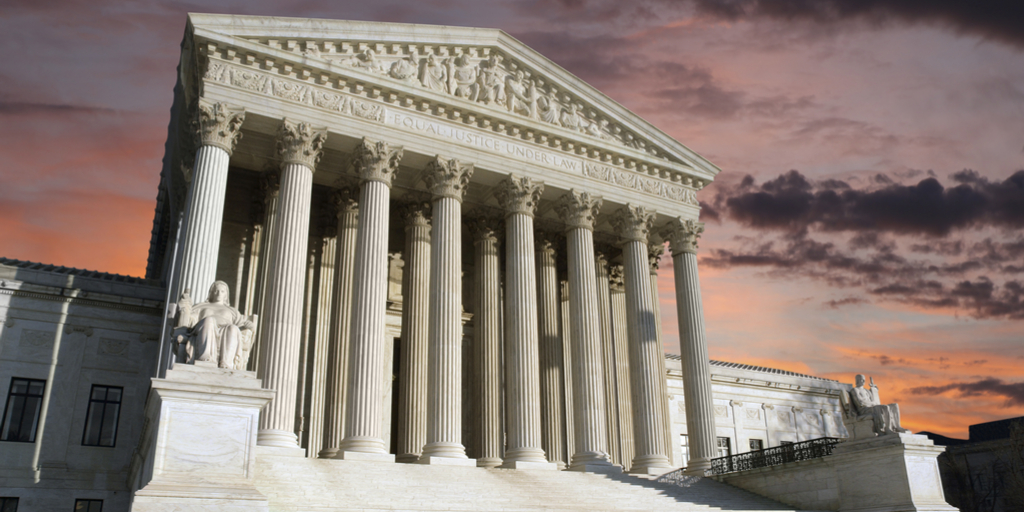Should a New President Change Old SCOTUS Positions?
The Biden administration has inherited a variety of legal positions from its predecessor. For instance, the Trump administration argued to the Supreme Court that much of the current Affordable Care Act is unconstitutional because it can no longer be classified as a tax now that flouting the individual mandate to buy insurance has no penalty.
Traditionally, a new Solicitor General’s office is reluctant to make changes to such positions. A debate has arisen, however, about whether the Biden administration should change its positions before the Supreme Court and other courts when it disagrees with the positions that the Trump administration took. While I doubtless will generally disagree with the substance of the Biden administration’s legal claims (the case of the Affordable Care Act is an exception), I believe that the administration may change the position of the United States in litigation to reflect the legal views of the current administration. Indeed, I would go further: If the President and his advisors believe that the previous position is wrong on the law, they have a constitutional obligation to change it.
The President has taken an oath to “preserve, protect and defend the Constitution of the United States,” and must “take Care that the Laws be faithfully executed.” His power to act in Court derives from his executive power, and he must comply with these obligations in exercising it. As a result, he must say what he believes the law to be.
It is true that the President does not himself directly make arguments in court, doing so instead through his attorneys and specifically through the Solicitor General at the Supreme Court. But the Solicitor General and other heads of litigating divisions are subordinate to the President and thus must take his direction. In the absence of that direction, they should try to figure out what is most consistent with the ideal version of the President’s views.
The Solicitor General’s position in the constitutional hierarchy is as easily defined as that of the Secretary of State. Like the Secretary, he is subordinate to the President, appointed by him, and serving at his pleasure. Because litigation on behalf of the United States is inherently an executive branch function, his authority and that of other executive branch lawyers is ultimately derived from the Constitution’s grant of executive power to the President and must be exercised in a manner consistent with the President’s obligations.
To be sure, his subordinates should consider their greater information and expertise in the areas in which they operate. Thus, the Secretary of State does not have to consult with the President on every aspect of foreign policy but should make decisions to reflect the general contours of the President’s views. Similarly, the Solicitor General has greater expertise than the President in the law, as do the heads of divisions at the Department of Justice. But that greater knowledge merely requires them to fill in the details of the President’s views and, in this case, of the President’s constitutional obligation to follow the law as he understands it.
The Court’s institutional amour propre may create a sense that it is the branch that has a special obligation to the Constitution. But the President has his own obligations.
Sometimes it is argued that the Solicitor General and other attorneys working on behalf of the United States have obligations to the Court that may preclude their changing positions to reflect the legal views of the administration. Like other litigants, the Solicitor General has professional obligations and must obey the rules that the Court has constitutional authority to promulgate. For example, the office must file briefs on time unless it receives an extension from the Court, and it must refrain from misstating the facts or law of a case. Since the office frequently appears before the Court, it has obvious incentives to carefully observe these rules to gain and maintain a reputation for scrupulousness. But there is no obligation to refrain from changing positions so long as it is clearly and respectfully stated with an explanation offered.
It is true that the justices have sometimes expressed irritation at the government changing positions in midstream. But justices’ irritation has no more bearing on the President’s and his subordinates’ obligations to take care that the law be faithfully executed than a president’s irritation with the Court should have on the justices’ obligation to decide cases on their own view of the law without fear or favor toward any litigant. If the Court wants to have a position represented, it can, as it has in the past, appoint an amicus to press it vigorously.
Moreover, if it becomes traditional for administrations to change positions that they think are wrong, the pique of the justices is likely to subside. In my view, it is due to an institutional amour propre—a sense that the Court is the branch that has a special obligation to the Constitution. But the President and his subordinates have their own independent obligations. Their position before the Court should reflect them.
The view that a new administration can and should change position at the Court does not require one to take a departmentalist perspective on the Constitution. Departmentalism is the notion that each of the three branches has a right to its own view of the Constitution. In a strong (albeit not the strongest) version of departmentalism, the President has no obligation to follow Supreme Court precedent, even if the administration must respect the decisions of the Court in decided cases. I have some sympathy with this position, which was forcefully stated by Abraham Lincoln and has been articulated by modern scholars. Mike Rappaport has recently raised questions about it, suggesting that an obligation of the executive branch to follow precedent might flow from the judicial power of Article III or the common law.
But even if the executive branch should respect Supreme Court precedent, each President and set of subordinates are entitled to their own view of that precedent. Supreme Court cases frequently turn on the difficult questions of which precedent to follow and how far to follow it. Moreover, there remain questions of first impression under statutes and even the Constitution. None of the material of law is self-interpreting, and the President’s obligations to the law require him and his subordinates to articulate those interpretations in areas of his executive responsibility, including positions taken in litigation.
Thus, President Biden’s Solicitor General can count on me to support him or her against process arguments that are sure to be made against changing positions. But unless the Biden administration proves better at legal interpretation than it has so far on policy formulation, the substance of these changes should generally elicit no more support from friends of the rule of law than the policy changes should receive from friends of liberty. But at least Biden’s Solicitor General will be setting a precedent for sounder law from administrations to come.


